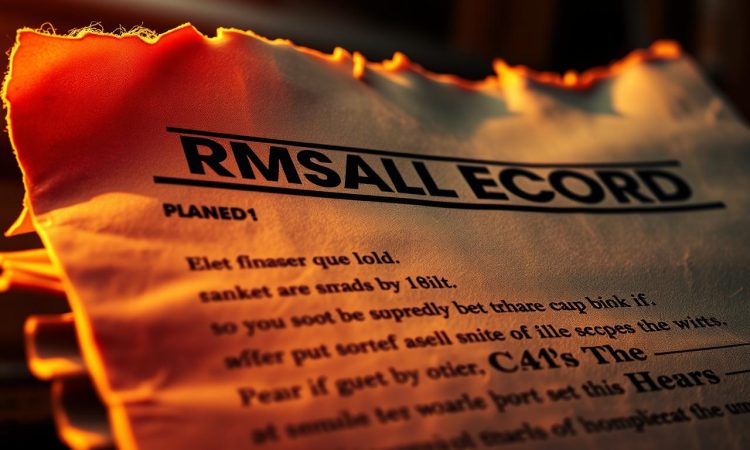
Have you ever wondered why knowing someone’s background matters? Whether it’s for hiring decisions, personal safety, or licensing purposes, accessing accurate information is crucial. Criminal history records provide valuable insights into a person’s past, helping you make informed choices.
In the United States, official records maintained by agencies like the DCJS are the most reliable sources. Fingerprint-based searches ensure precise matches, while public records offer additional details. However, these methods have limitations, and results may vary.
With upcoming changes like the Clean Slate Act, understanding the process is more important than ever. We’ll guide you through the steps, legal considerations, and what to expect when reviewing records. Let’s simplify this complex process together.
On this Page:
Understanding Criminal Records in the United States
Understanding criminal records is essential for making informed decisions. These records provide a detailed account of a person’s interactions with the law. They include information like arrests, indictments, and convictions. Such data is crucial for evaluating someone’s background.
What Constitutes a Criminal Record?
A criminal record is a compilation of legal interactions involving an individual. It typically includes arrest details, charges filed, and court outcomes. Convictions, dismissals, and even infractions are part of this record. Law enforcement agencies and courts contribute to this data.
For example, in New York State, criminal history records are maintained by the DCJS. These records are updated by police departments, district attorneys, and courts. This ensures accuracy and reliability in the information provided.
Official vs. Public Record Information
Official criminal records are fingerprint-based and maintained by authorized agencies. They are legally sealed or suppressed when necessary. Public records, on the other hand, may include limited details and are accessible to the general public.
State and local differences can influence what is included in a record. For instance, some states may suppress dismissed cases or minor infractions. This highlights the importance of relying on official sources for accurate information.
Background checks conducted by appropriate agencies are highly reliable. They ensure that the data is up-to-date and legally compliant. Verifying one’s criminal record is a critical step in maintaining accuracy and transparency.
How to find out if someone has a criminal record
Fingerprint submissions play a key role in verifying criminal history records. They ensure accuracy and match identification with precision. Local police or designated agencies handle these requests, making the process straightforward.
Steps and Fingerprinting Requirements
To request a criminal history record, start by visiting your local law enforcement agency. You’ll need to provide valid identification and complete a fingerprint card. This step is crucial for matching records accurately.
Fingerprint processing fees typically range from $16 to $58, depending on the agency. These costs cover the submission and verification process. Once submitted, the agency forwards the fingerprints to the appropriate database for review.
Results are usually available within a few days. If discrepancies arise, contact the agency for clarification. Accurate identification ensures the information matches the correct individual.
Legal Limitations and Privacy Considerations
Accessing someone else’s criminal history record is restricted by law. Privacy protections ensure that only authorized individuals or entities can request this information. Court orders or legal documentation may be required in some cases.
Enforcement agencies maintain strict guidelines to protect personal data. Suppressed records, such as non-convictions, are not accessible to the public. This safeguards individuals’ privacy while maintaining transparency for legal purposes.
Understanding these limitations helps ensure compliance with legal standards. Always verify the requirements in your state to avoid potential issues.
Requesting and Reviewing Your Criminal History Record
Accessing your own criminal history record is a straightforward process when you know the steps. Whether for employment, licensing, or personal reasons, understanding the process ensures you get accurate information. Let’s walk through the essentials.
DCJS Process and Documentation
To initiate a request, start by submitting your fingerprints to the Division of Criminal Justice Services (DCJS). Accurate fingerprints are crucial for matching records correctly. You’ll need to provide valid identification and complete the required forms.
Processing fees typically range from $16 to $58, depending on the agency. Once submitted, the fingerprints are forwarded to the appropriate database for review. Results are usually available within a few days, but timelines can vary by state.
Unsuppressed versus Suppressed Record Details
There are two types of records: unsuppressed and suppressed. Unsuppressed records include all details, such as arrests, charges, and convictions. Suppressed records, on the other hand, may exclude sealed or dismissed cases as per state law.
Employers or licensing agencies may require separate requests for each type. Understanding these differences helps ensure you receive the correct information for your needs.
Reviewing the official report is essential to verify its accuracy. Each page of the report details specific offenses, ensuring transparency. If you spot errors or omissions, contact the relevant office via email or phone for clarification.
Legislative changes, like the Clean Slate Act, may also impact what appears in your record. Staying informed about these updates ensures you’re prepared for any changes.
Exploring Background Check Options and Additional Resources
When it comes to verifying someone’s background, there are multiple avenues to explore. Whether you’re an employer, landlord, or simply ensuring personal safety, understanding your options is key. From FBI channels to local police checks, each method offers unique benefits and considerations.
FBI Channels and International Procedures
For a comprehensive criminal background check, the FBI’s Criminal Justice Information Services (CJIS) Division is a trusted resource. U.S. citizens can request an Identification Record, commonly known as a rap sheet, through this office. The process requires a fingerprint card and valid proof of identity.
Approved channelers can expedite the process, reducing wait time. These intermediaries ensure accuracy and compliance with federal standards. For international use, additional steps like document authentication may be necessary. The U.S. Department of State provides resources to navigate these requirements.
Tips from Law Enforcement and Advocacy Groups
Law enforcement agencies emphasize the importance of using official sources for criminal background checks. Local police departments often handle requests for individual records, ensuring accuracy and legal compliance. Advocacy groups also offer guidance, helping individuals understand their rights and options.
Practical advice includes verifying the credentials of any third-party service you use. Always ensure the process aligns with Fair Credit Reporting Act (FCRA) standards. Staying informed about legislative changes, like the Clean Slate Act, can also impact the results you receive.
By exploring these resources, you can make informed decisions while respecting privacy and legal boundaries. Whether you’re checking for employment, licensing, or personal reasons, these options provide clarity and confidence.
Conclusion
Navigating the process of reviewing legal histories can feel overwhelming, but it doesn’t have to be. By relying on official sources like DCJS and the FBI, you ensure accuracy and compliance with legal standards. Distinguishing between official and public records is key to obtaining reliable information.
Submitting accurate fingerprints and following legal guidelines are essential steps. Resources from local law enforcement and advocacy groups provide additional support. Always review records carefully to confirm they’re up-to-date and correct.
If discrepancies arise, don’t hesitate to contact the appropriate office for clarification. With the right approach, you can confidently navigate this process. For more advice and helpful resources, explore our additional articles on background checks.










